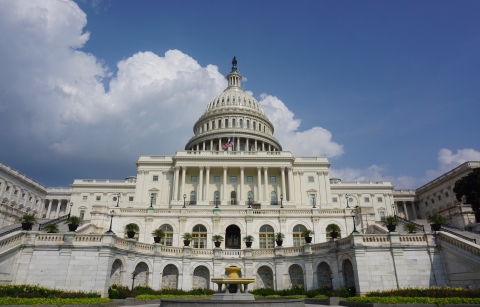Event Industry Rallies Behind Pandemic Risk Insurance Act

A bill introduced on May 26 by Rep. Carolyn Maloney (D-NY), a senior member of the House Financial Services Committee, to create the Pandemic Risk Insurance Program — a system of shared public and private compensation for business interruption losses resulting from future pandemics or public health emergencies — is gaining support from the meetings and events industry.
Among the supporters is ASAE. The COVID-19 pandemic has caused severe financial strain on America’s associations resulting from cancelled meetings, conventions and trade shows not covered in existing insurance policies, and creation of a Pandemic Risk Insurance Program is one of ASAE’s primary asks of Congress to ensure future event cancellations resulting from a pandemic are covered.
Maloney’s bill (H.R. 7011) would require insurance companies to offer business interruption insurance policies that cover pandemics and ensure there is sufficient capacity to cover these losses and bolster the economy in the event of a future pandemic. Similar to the Terrorism Risk Insurance Act (TRIA), enacted shortly after 9/11, the federal government would serve as a backstop to maintain market stability and to share the burden alongside the private insurance industry.
While it would not be retroactive to cover COVID-19 losses, the program would be triggered after $250 million in aggregate industry losses and following any future declaration of a covered public health emergency or pandemic. If passed, it would establish a backstop for business interruption or event cancellation losses resulting from future pandemics or public health emergencies declared on or after Jan. 1, 2021.
After the bill was introduced last week, ASAE began working to build support in Congress and among stakeholders for this important legislation.
“The Pandemic Risk Insurance Act offers a critical solution for associations and others devastated by event cancellations, slashed reserves and sharp membership declines amid COVID-19,” said ASAE President and CEO Susan Robertson.
She continued, “ASAE thanks and applauds Congresswoman Maloney for introducing this important bill, which will no doubt help provide America’s 62,000 associations the security they need to fully reignite our community’s far-reaching economic impact through industry-focused conferences, workforce development and educational programming.”
Congresswoman Maloney explained the reasoning behind the bill. “Millions of small businesses, nonprofits, mom-and-pop shops, retailers and other businesses are being left out in the cold and will never be able to financially recover from the coronavirus crisis because their businesses’ interruption insurance excludes pandemics,” she explained. “We cannot allow this to happen again. These employers and their employees need to know that they will be protected from future pandemics, which is why I am introducing the Pandemic Risk Insurance Act.”


Add new comment